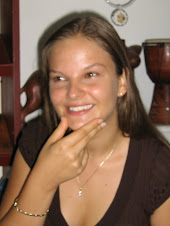IFC approves initiatives to support emerging markets

IFC’s Board today approved a package of crisis response initiatives to support the private sector in emerging markets hit by the global financial crisis. On December 9, it also approved a Sovereign Funds Initiative which will enable IFC, a member of the World Bank Group, to raise and manage commercial capital from sovereign funds for equity investments in some of the poorest developing countries. The initiatives will support the private sector, which is critical to employment, recovery, and growth.
The crisis response facilities consist of a doubling of the
IFC Global Trade Finance Program to $3 billion, a new $3 billion Bank Recapitalization Fund, and an Infrastructure Crisis Facility which is expected to mobilize at least $1.5 billion. These will be supported by advisory services addressing the needs of clients affected by the crisis.
The goal of the Sovereign Funds Initiative is to connect long-term commercial capital from state-owned investors with the substantial investment needs of private companies in developing countries.
“We are pleased that the Board approved and endorsed these important initiatives,” said Lars Thunell, IFC’s Executive Vice President and CEO. “With the support of donors and partners, these IFC facilities will provide critical assistance to many businesses and entrepreneurs and reduce the impact of the crisis on the poor. In addition, our new Sovereign Funds Initiative should mobilize new sources of commercial capital for long-term investment in frontier regions and countries.”
The four crisis response facilities are expected to deploy about $30 billion over the next three years. IFC will fund the facilities and has invited other donors, including governments and international financial institutions to contribute financing and expertise. The Japanese government has announced that it will become a founding partner and invest $2 billion in the Bank Recapitalization Fund.
IFC’s Board of Directors is a permanent board that represents IFC’s 181 member countries and guides its programs and activities.
About IFC’s Crisis Response Facilities
Expanded trade finance program: IFC will double its existing Global Trade Finance Program from $1.5 billion to $3.0 billion over a three year period to meet a large increase in demand for short-term trade finance. The expanded facility will benefit participating banks, including those in some of the world’s poorest countries.
Bank Recapitalization Fund: IFC will launch a global equity fund to recapitalize banks, as bank failures would further damage economic activity and worsen poverty in developing countries. IFC expects to invest $1 billion over three years and Japan has announced it will invest $2 billion in the fund.
Infrastructure Crisis Facility: This new IFC facility will bridge the gap in available financing for viable, privately-funded infrastructure projects facing financial distress. IFC expects over three years to invest a maximum of $300 million and that other sources will invest between $1.2 billion and $10 billion.
IFC Advisory Services: IFC is scaling up and refocusing its advisory services geared to financial institutions and governments, and reform of the financial infrastructure—banking for small and medium enterprises, leasing, microfinance, housing, investment policy and promotion, and business operation and regulation.









